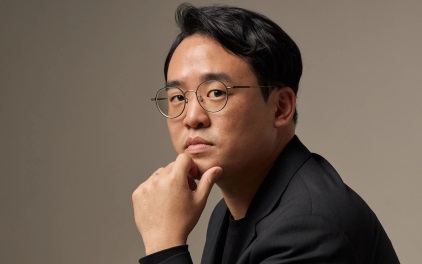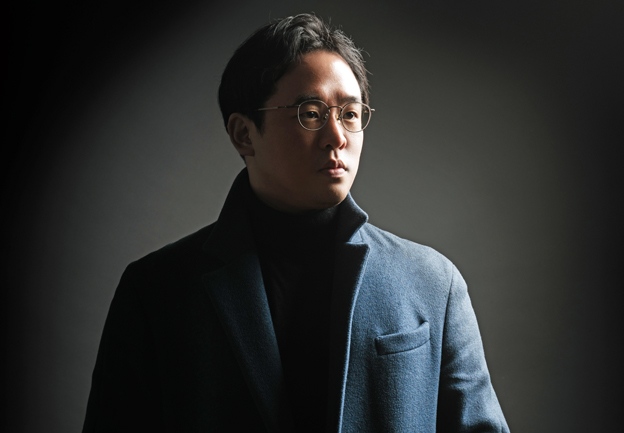As a Korean pianist, you have no roots in Europe. Yet, as so many Koreans you deal easily with European music. What do you have to pay attention to?
Regardless of the country or continent, musicians strive to explore and understand the composer’s intentions. We study works created over several centuries and seek answers through the composer’s lifetime, written sources, and scholarly approaches. That is why many Korean and other musicians engage deeply with European music, even though we may not share its cultural roots. Through our studies, we come to understand the culture, language, and environment from different perspectives in our lives.
But where do you belong to, musically? You say you are a Korean/American artist?
Even though I am a Korean-American artist, my musical identity is closely tied to European music, particularly that of Germany and Austria. Living 18 years in Korea and another 17 years in the United States has undoubtedly shaped my musical background, including my training and cultural influences. However, I have also been deeply influenced by listening to numerous recordings and performances by European musicians, both in concert and on record.
How it did come that you became a Bechstein artist, and what this means to you?
Being a Bechstein artist means I can confidently and responsibly perform on my favorite piano brand. The unique characteristics and timbre of Bechstein pianos have drawn me to develop a closer relationship with the brand. It is truly an honor, but it also comes with greater responsibility.
What is according to you the main quality of a Bechstein grand?
For me, the defining qualities of a Bechstein grand are its warm timbre and crystal-clear sound. These attributes perfectly align with the expressive depth and versatility I seek for my repertoire, allowing me to bring out the nuances and intentions of each piece with authenticity and artistry.
Why did you choose Bärenreiter for this project?
When selecting an edition, there was no hesitation in choosing Bärenreiter. This edition consistently aims to uncover the composer’s original intent, encouraging me to study and interpret the music from the composer’s perspective. For instance, the lack of pre-written fingerings in their scores challenges me to engage more deeply with the text and develop my own approach.
I especially prefer Bärenreiter for Beethoven’s piano sonatas, as their meticulous attention to detail allows performers to bring out subtle nuances that can make a profound difference. The trust I have in Bärenreiter’s scholarship and reliability only deepens my respect for their work. That’s why I am both thrilled and honored to have their support for this Beethoven album.
In which sense is your Korean background important for you?
As a pianist, I am often seen as an outsider who doesn’t fully belong to any single musical tradition, whether European or American. However, this unique position allows me to create something distinct—something that neither Europeans nor Americans can fully explore—by combining three diverse styles: Asian, American, and European. My Korean background, along with my experiences across these cultures, enriches my personal perspective and artistic vision. The variety of influences from each continent ultimately shapes my unique « color, » both in music and in life.
What is most striking difference between the musical life in your native Korea and the one you experience in Europe or in the United States?
It’s difficult to pinpoint a single example, as experiences vary depending on personal circumstances. However, one notable difference is the flexibility teachers in Europe and the United States often show toward personal interpretation. During my studies with five exceptional teachers – Matti Raekallio, Jeffrey Swann, Bernadene Blaha, Eteri Andjaparidze, and Angela Cheng – I was fortunate to explore and experience a wide variety of teaching styles. When I presented my own interpretations of music, most of my teachers sought to understand and view the music from my perspective rather than imposing their own ideas. While this approach can vary depending on the teacher, I felt that my personal interpretations were more respected and encouraged, allowing for greater artistic freedom compared to the stricter guidance often found in Korean musical culture.
You have participated in a lot of competitions. Do you like to compete?
Yes, competitions are a wonderful opportunity not only to prove myself as a musician but also to meet incredible colleagues who share the same passion and goals in the music industry. They allow me to test my abilities, draw inspiration from other outstanding pianists, and continually push myself to improve. Although the pressure and stress can be intense, competitions also provide a unique chance to connect with others and build meaningful relationships within the musical community.
You play solo recitals and concerts with orchestra. Do you have any preference?
I love performing solo recitals as well as concerts with orchestras. While I still prefer solo recitals, I am eager to explore more repertoire for performances with orchestras.
And what about chamber music?
Recently, I have become very interested in chamber music. Chamber music offers a different appeal than solo recitals, allowing me to share musical ideas with other musicians and create a collective story rather than just my voice. I am actively seeking opportunities to perform piano quartets or quintets.
You have recorded Beethoven’s Piano Sonatas Op. 2 No. 3, No. 21, Waldstein and 26, Les Adieux? Why this choice? What is particular about these sonatas and how are they connected?
I would like to present three distinct characteristics of Beethoven through his piano sonatas. Op. 2, No. 1, dedicated to Joseph Haydn, reflects the texture and style of early Beethoven, still rooted in the classical tradition. Op. 53, Waldstein, represents the middle period of his sonata writing, incorporating more Romantic elements, such as innovative harmonic progressions and expanded expressiveness. Finally, Op. 81a, Les Adieux, stands out as the only programmatic work among his piano sonatas, conveying a deeply personal narrative. Through these three sonatas, I hope the audience can experience and connect with the evolution of Beethoven’s style and emotional depth.
Is Beethoven among your favorite composers? Do you have any other favorites or simply periods?
Yes, Beethoven is one of my favorite composers. His music’s emotional depth, structural brilliance, and revolutionary spirit resonate deeply with me. Performing his works feels like a profound journey as they convey struggle, triumph, and humanity.
I also greatly admire Brahms’s rich harmonies, intricate counterpoint, and emotional complexity. His music combines intellectual depth with heartfelt passion.While I’m especially drawn to Beethoven and Brahms, I appreciate the Romantic era’s expressive innovation, the Classical period’s clarity, and the boldness of contemporary music, each offering unique artistic inspiration.





















